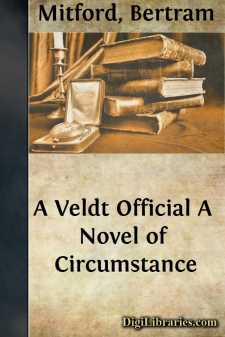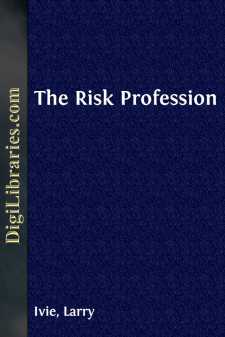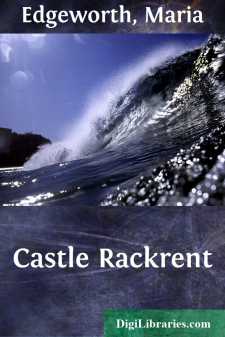Fiction
- Action & Adventure 180
- Biographical 15
- Christian 59
- Classics 6965
- Coming of Age 5
- Contemporary Women 3
- Erotica 8
- Espionage/Intrigue 12
- Fairy Tales, Folklore & Mythology 236
- Family Life 169
- Fantasy 117
- Gay 1
- General 596
- Ghost 32
- Historical 808
- Horror 43
- Humorous 160
- Jewish 25
- Legal 4
- Medical 22
- Mystery & Detective 315
- Political 49
- Psychological 41
- Religious 64
- Romance 159
- Sagas 11
- Science Fiction 730
- Sea Stories 113
- Short Stories (single author) 537
- Sports 10
- Suspense 1
- Technological 8
- Thrillers 2
- Urban Life 31
- Visionary & Metaphysical 1
- War & Military 173
- Westerns 199
Fiction Books
Sort by:
by:
Bertram Mitford
"Now where the very mischief is Doppersdorp?" He who thus uttered his thoughts aloud looked up from the sheet of paper in his hand, and gazed forth over the blue waters of Algoa Bay. Over the vessels riding at their anchorage his gaze wandered, over the stately hulls of two or three large mail steamships similar to that upon whose deck he then stood; over the tall, tapering masts and web-like...
more...
by:
Barnes & Co.
EARLY DISCOVERIES AND SETTLEMENTS. [Illustration: BALBOA.] GEOGRAPHICAL KNOWLEDGE IN THE FIFTEENTH CENTURY.—The people of Europe had then never heard of America. About that time, a great desire for geographical knowledge was awakened. The compass and the astrolabe—an instrument for reckoning latitude—had been already invented. Voyagers were no longer compelled to creep along the shore, but began...
more...
by:
Francois Coppee
FRANCOIS COPPEE FRANCOIS EDOUARD JOACHIM COPPEE was born in Paris, January 12, 1842. His father was a minor 'employe' in the French War Office; and, as the family consisted of six the parents, three daughters, and a son (the subject of this essay)—the early years of the poet were not spent in great luxury. After the father's death, the young man himself entered the governmental office...
more...
by:
Larry Ivie
Mister Henderson called me into his office my third day back in Tangiers. That was a day and a half later than I'd expected. Roving claims investigators for Tangiers Mutual Insurance Corporation don't usually get to spend more than thirty-six consecutive hours at home base. Henderson was jovial but stern. That meant he was happy with the job I'd just completed, and that he was pretty...
more...
by:
Emile Zola
PIERRE AND MARIE ON the mild March morning when Pierre left his little house at Neuilly to accompany Guillaume to Montmartre, he was oppressed by the thought that on returning home he would once more find himself alone with nothing to prevent him from relapsing into negation and despair. The idea of this had kept him from sleeping, and he still found it difficult to hide his distress and force a smile....
more...
by:
F. Anstey
THE INCONSIDERATE WAITER, By J. M. BARRIE Frequently I have to ask myself in the street for the name of the man I bowed to just now, and then, before I can answer, the wind of the first corner blows him from my memory. I have a theory, however, that those puzzling faces, which pass before I can see who cut the coat, all belong to club waiters. Until William forced his affairs upon me that was all I did...
more...
CHAPTER I SIR FREDERICK HARLESTON In these days, when the air is filled with the irritating, peevish sounds of chattering gossips, which tell of naught but the scandals of a court, where Queens are as faithless as are their lives brief, methinks it will not be amiss for me to tell a story of more martial days, when gossips told of armies marching and great battles fought, with pointed lance, and with...
more...
The Museum of Zoology, University of Utah, contains approximately 5000 specimens in addition to those available to Durrant (1952) when he prepared his account of the "Mammals of Utah, Taxonomy and Distribution." Study of this material discloses two kinds of mammals not heretofore known to occur in Utah, and extends the known limits of occurrence of many others as is set forth below in what may...
more...
Chapter I. Julius Courtney. The Hyacinth Club has the reputation of selecting its members from among the freshest and most active spirits in literature, science, and art. That is in a sense true, but activity in one or another of those fields is not a condition of membership; for, just as the listening Boswell was the necessary complement of the talking Johnson, so in the Hyacinth Club there is an...
more...
by:
Maria Edgeworth
INTRODUCTIONIThe story of the Edgeworth Family, if it were properly told, should be as long as the ARABIAN NIGHTS themselves; the thousand and one cheerful intelligent members of the circle, the amusing friends and relations, the charming surroundings, the cheerful hospitable home, all go to make up an almost unique history of a county family of great parts and no little character. The Edgeworths were...
more...











